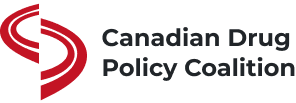Going beyond decriminalization and envisioning a post-prohibition Canada where substances are legal and regulated
What: Community forum featuring an international panel of experts on drug policy and experts with lived experience to debate how Canada can create a system of legal regulation of drugs grounded in social inclusion, human rights, and compassion. What would these systems look like? How would they be implemented? What broader impacts would they have?
- The event will be recorded as an episode of the Crackdown Podcast.
When: Wednesday, May 15, 7:00 p.m. – 9:00 p.m.
Where: SFU Goldcorp Centre for the Arts, Djavad Mowafaghian Cinema (149 West Hastings St, Vancouver)
Who: Panel will be moderated by award-winning broadcaster, activist, and member of the Vancouver Area Network of Drug Users, Garth Mullins, and will include the following:
- Zara Snapp, Co-founder, Instituto RIA (human rights/research organization proposing innovative solutions on drug policies) – Mexico
- Steve Rolles, Senior Policy Analyst, Transform Drug Policy Foundation (played a role advising Canadian government on its cannabis regulation model) – United Kingdom
- Akwasi Owusu-Bempah, Professor, Sociology, University of Toronto – Canada
- Suzanne Fraser, Professor, Public Health, Curtin University – Australia

From left to right: Garth Mullins, Zara Snapp, Akwasi Owusu-Bempah, Steve Rolles, Suzanne Fraser
Why: Current drug policies in Canada are a catastrophic failure. These policies have created a toxic drug supply that has killed more than 10,000 Canadians since 2016. Urgent action is needed to stem the tide of fatalities. Decriminalization, which health officials, doctors, and politicians, have openly supported, is a welcome step forward. And it’s imperative that we get at the heart of the crisis: the toxic drug supply.
Legal regulation of drugs must be explored if we are to end the loss of life. This public forum will bring us one step closer to realizing this vision, relying on the insight of people with lived experience and international experts in the field of drug policy.
Contact
Peter Kim
Strategic Communications Manager
Canadian Drug Policy Coalition
[email protected]
Emily Jenkins
Assistant Professor
UBC School of Nursing
[email protected]
Download PDF Version of Advisory
– 30 –
About the Canadian Drug Policy Coalition
The Canadian Drug Policy Coalition (CDPC) is a coalition of 70 organizations and 3,000 individuals working to support the development of progressive drug policy grounded in science, guided by public health principles, and respectful of human rights. The CDPC operates as a project within Simon Fraser University under the Centre for Applied Research in Mental Health and Addiction. The CDPC seeks to include people who use drugs and those harmed by the war on drugs in moving toward a healthier Canadian society free of stigma and social exclusion.
Panelist Biographies
Garth Mullins is a person who uses drugs, an activist, and an award-winning radio documentarian. He is the host and executive producer of the Crackdown Podcast, where drug users cover the drug war as war correspondents. This is Garth’s second overdose crisis. He used injection heroin for over a decade and is now on methadone. He is a member of the Vancouver Area Network of Drug Users and is also a trade union organizer and musician. (Photo credit: Rob Newell)
Zara Snapp is the co-founder of Instituto RIA, board member of ReverdeSer Colectivo (Mexico), and the international advisor for Acción Técnica Social (Colombia). From 2014-2017, she formed part of the Secretariat of the Global Commission on Drug Policy, where she focused on the Latin American strategy and UNGASS 2016. As a Truman Scholar and Public Service Fellow, she received a Masters in Public Policy from the Kennedy School of Government at Harvard University.
Steve Rolles is Senior Policy Analyst for the Transform Drug Policy Foundation, a UK-based think tank and charity focused on drug policy and law reform. Steve has served as an adviser for the Global Commission on Drugs and the Uruguayan and Canadian governments in developing their cannabis regulation models. He has worked closely with The LOOP in the UK facilitating the roll-out of drug safety testing at festivals.
Akwasi Owusu-Bempah, PhD (Toronto), is an assistant professor in the Department of Sociology at the University of Toronto. Dr. Owusu-Bempah’s work focuses on the intersections of race, crime, and criminal justice, with a particular interest in the area of policing. He is currently studying various aspects of cannabis legalization in Canada and the United States. His research has recently been published in Policing and Society, Crime and Justice, and Theoretical Criminology.
Suzanne Fraser is a professor of public health (Curtin University, Australia). She is program leader for the National Drug Research Institute’s Social Studies of Addiction Concepts Research Program and author of numerous books on the body and health in society and culture. Her most recent, Habits: Remaking Addiction, is co-authored with David Moore and Helen Keane. Suzanne’s main research projects at present are two Australian Research Council-funded studies. One is exploring injecting practices and harm reduction needs among men who inject performance and image-enhancing drugs, and the other is investigating impediments to the uptake and diffusion in Australia of take-home naloxone, the opioid overdose medication known to save lives. This project will be used to create an online resource presenting accounts of overdose revival and take-home naloxone use, which will be linked to the internationally-praised website she built with colleagues on lived experiences of addiction, Livesofsubstance.org.


































